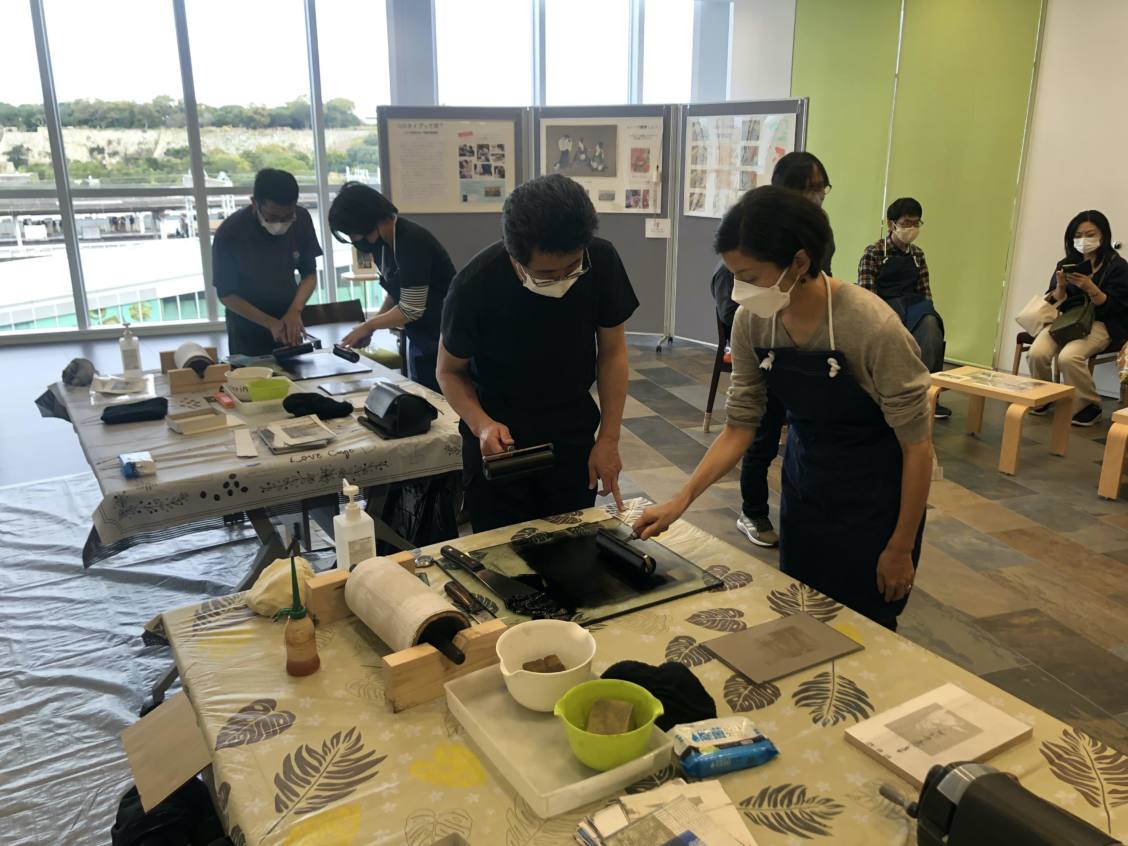
The Collotype Printing workshops allowed 24 participants to learn from a collotype master printer from the world’s only remaining commercial producer of color collotypes. Registration for the workshops quickly filled to capacity and were a huge success, thanks in part to the Japan Foundation’s generous grant. The workshop was held twice, on the first and last days of Foundation for Advancement in Conservation’s week-long program, Photomechanical Prints: History, Technology, Aesthetics, and Use, in Washington, D.C. the week of October 30th – November 3rd, 2023. The symposium that took place between the workshops was completely sold out, with 200 people overall in attendance, including people engaging with photomechanical materials in a variety of capacities such as conservators, curators, historians, educators, art dealers, and students.
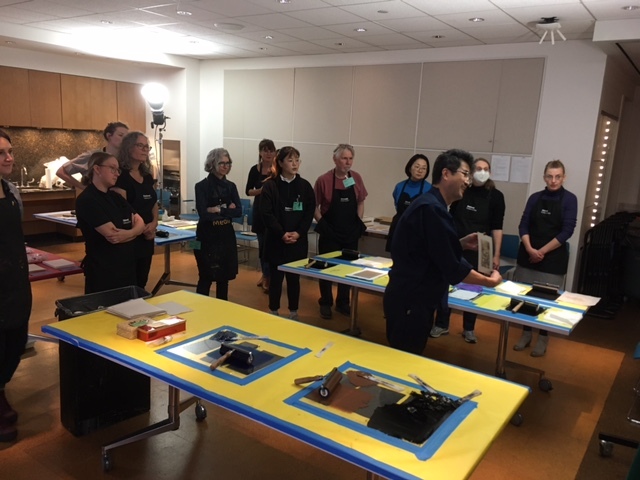
Due to the much appreciated support of the Japan Foundation, master collotype printer Osamu Yamamoto was able to teach this historic printing process to 24 participants, using his deeply specialized knowledge that simply could not be taught by anyone else. Workshop participants raved about Yamamoto’s workshop, calling it “the best I’ve ever done” and “an amazing opportunity.” Yamamoto was joined by another colleague from Benrito and FAIC was able to utilize volunteer interpreters from the Smithsonian to provide clear communication between the instructor and participants. The participants complimented the smooth communication and assistance provided throughout the program.
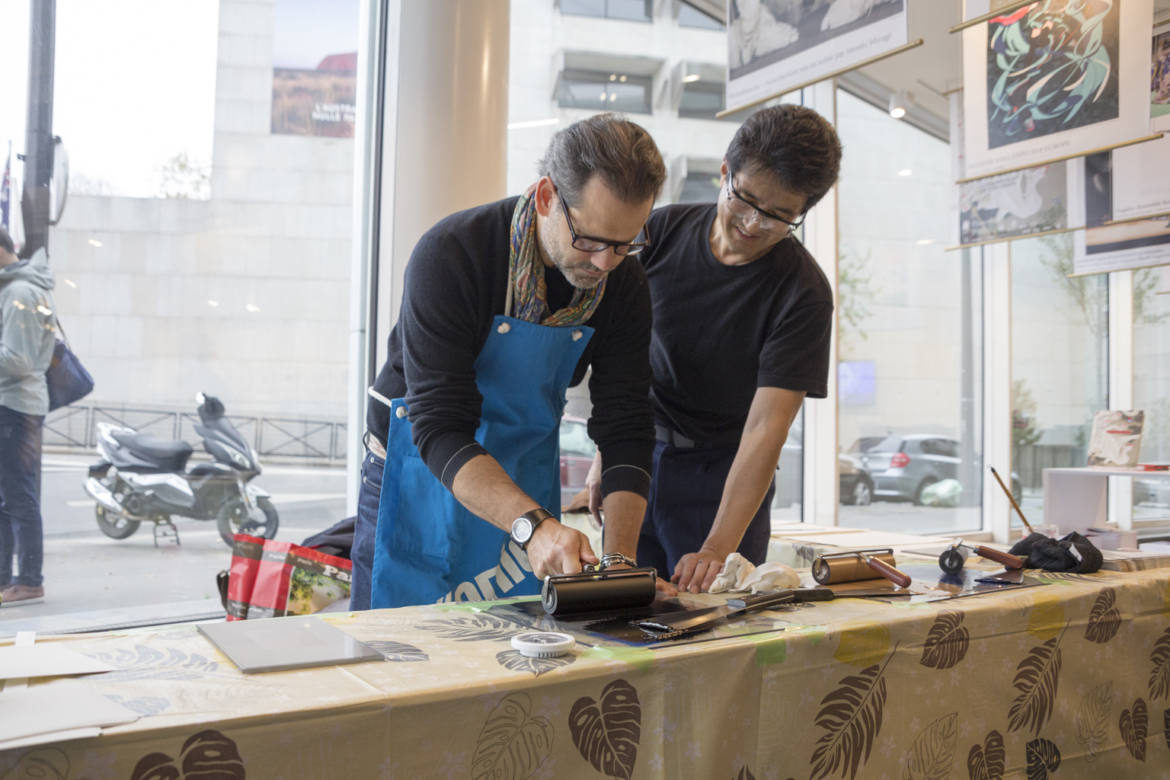
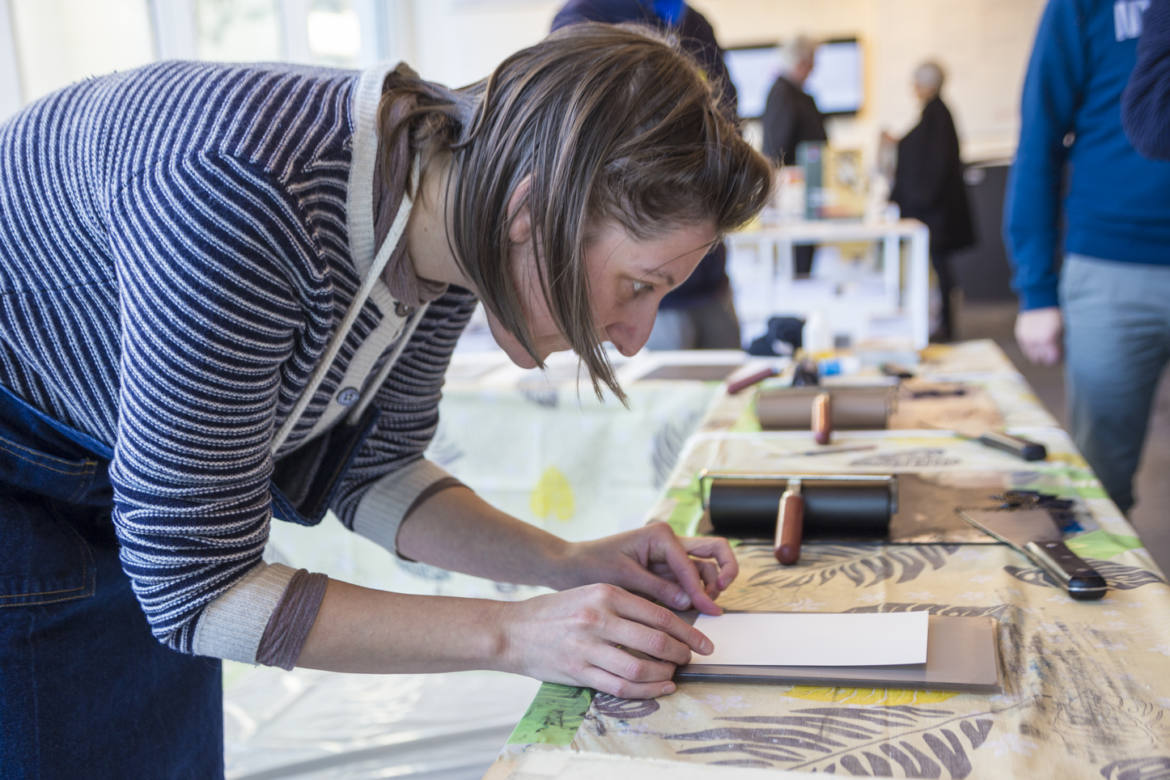
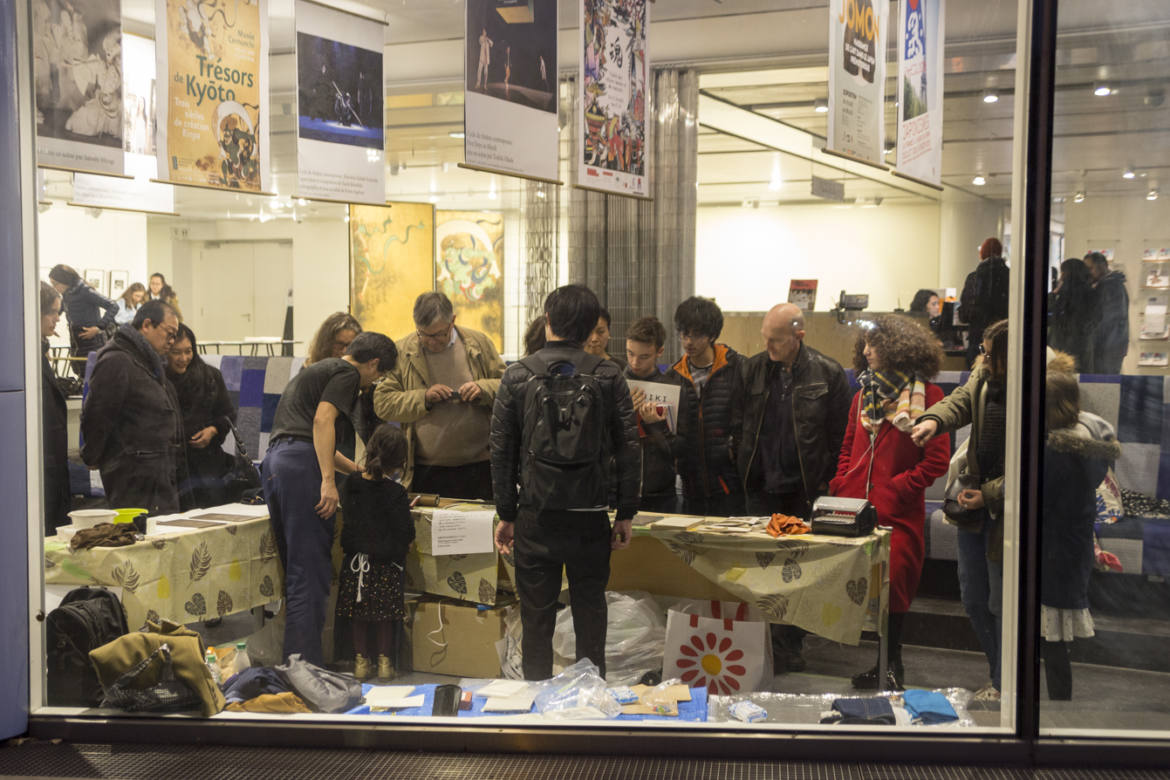
It was especially useful to participants to have Yamamoto provide demonstrate in-person demonstrations and printing assistance, allowing for hands-on learning which cannot be replicated through other teaching methods. In addition, Yamamoto’s physical presence in Washington, DC, allowed him to attend the three-day symposium, which offered exposure to a larger number of people interested in this topic. Opportunities for conversation took place during coffee breaks and an evening reception at the National American History Museum. This meant even more cultural exchange took place, for which we owe the Japan Foundation much thanks.
This project was supported by the JFNY Grant for Arts and Culture.